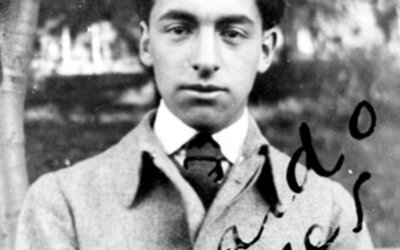Essays
Latest Reviews
Featured Interview
Newest Essay
Big Brother Says “2 + 2 = Fun”
By T.S. Carney
I was listening to NPR, a favorite pastime of my family (including my nearly two-year-old son). At seven o’clock in our region, we hear the show 1A — a program that tackles the issues of the day, earnestly and without irony. Today’s topic was “George Orwell’s 1984 and the Threat to Our Democracy.”
Certain Writers Make Me Want to Die
By Jupi Bowen
“For some masochistic reason, I have a subscription to Poets & Writers Magazine. Mostly because I want to peer into the publishing world and see what normies are reading without completely fucking my algorithm online.”
Listening to Rilke Redux
By Wally Swist
“In Rilke’s praises, we find our own praise—of ourselves, of others, of mostly anything, actually. When anyone experiences an epiphany, that person wants to share that epiphany.”
On Translating Neruda
By Wally Swist
“To realize what is right in front of us all the time, and for us not to fully appreciate it, is just part of the gift of the legacy of Neruda’s odes, and among their nourishment we discover the astonishment of the awareness of living.”
Preface: Wild Rose Bush
By Wally Swist
“Almost no translation of “Lullaby” has disappointed me, but I have never found those translations adequate or fully accommodating of the rhythms, images, and lyrics that I felt, saw, and heard in the poetry.”
Personal Things: A Countertheme Sequence from Rilke’s Neue Gedichte 1907
By Art Beck
“Some months ago, a friend sent me a translation of a Rilke poem titled “Todes-Erfahrung,” he found in a British journal. I wasn’t familiar with the poem, and it piqued my interest enough to try my own version.”
In the Name: The Power to Be Moved
By Robert Stewart
“Who is this him? If there were an actual him, the poem would do him a disservice.”
Untranslatable Song: The Vertical Poetry of Roberto Juarroz
By Wally Swist
“For a poet who is also considered to be an aphorist, and who was a friend and colleague of Antonio Porchia, a master of the form, the poetry of Juarroz is more substantive than what is an oversimplification of his style and form.”
How to Tell a True Origin Story of a Novel
By Nina Schuyler
“My novel is about a female mathematician, Virginia, who uses artificial intelligence to bring back her dead lover. The two anecdotes I just told you might seem like the origin story of my novel. If someone tells you an origin story like this, don’t believe it.”
Hidden Mischief: Some Thoughts on Tate and Edson
By Robin Arble
“The mischief in Tate and Edson’s poems plays with form as much as content. Already bored with the subversion inherent in the ‘the prose poem’—an oxymoron, a floating stone—their poems straddle the line between verse and prose.”
Notes on a Poem: Nathan McClain’s Labor Day: Brighton Beach
By Robin Arble
“Nathan is skeptical of the prose poem because he thinks, like many, but not all poets, that the line break is a fundamental element of successful poetry, and any poem that abandons the line break must replace it with something that succeeds in doing everything the line break does.”
This Powerful Rhyme: A Helplessly Wandering Essay on a Willfully Meandering Poem
By Art Beck
In our neo-Orwellian world, is it adage, cliche’, or just hypothesis to say “the pen is mightier than the sword”? Does “the pen” equate with “the truth”? Or, since we’re talking about sword fights, aren’t the feints and parries of “alternative facts” every bit as much a weaponized pen as the sincerity of a straightforward lunge?
I Really Hate You, Doctor Fell, But Love’s Funny That Way
By Art Beck
In October 2016, I was honored to be a panelist at the annual American Literary Translators Conference. The panel title was “Crossing the Line,” and the topic description was as follows: “What happens when a translation gets adopted as an original in its target culture?”
Believing in the Sense of the Miraculous: Clarence Wolfshohl and the Art of Poetry as Fine Letterpress
By Wally Swist
I want to offer my appreciation of Clarence Wolfshohl’s Coal Mine Landscape and Armadillos & Groundhogs and a few other of my neighbors, both lovely letterpress books bearing his master craftsman’s stamp of quality.







